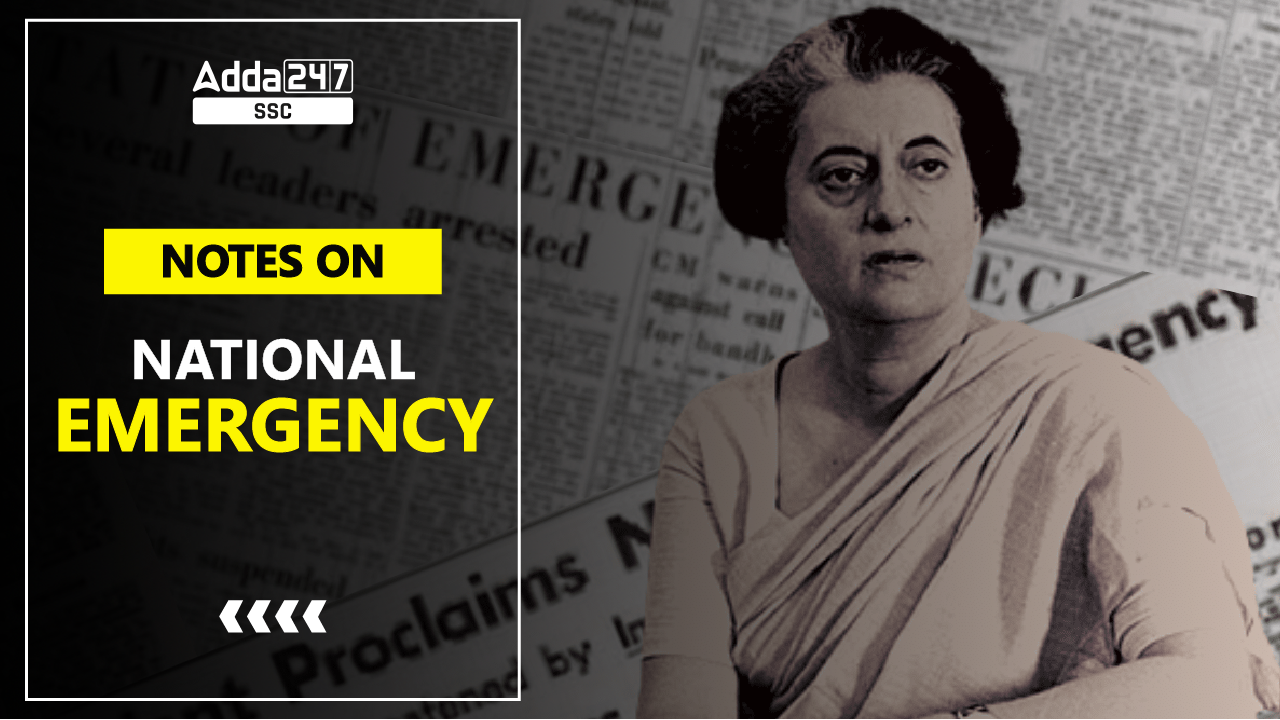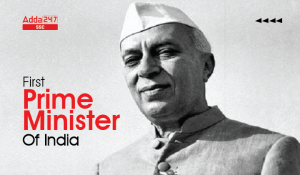National Emergency: Dear candidates, National emergencies are temporary situations in which governments take extra control to address a major problem. During national emergencies, some basic freedoms of citizens may be temporarily suspended. National emergencies test the resilience of a nation’s leadership and institutions, as they require a delicate balance between addressing urgent needs and maintaining the principles of democracy and human rights. National emergencies are typically declared in response to natural disasters, such as hurricanes, floods, or earthquakes, or to man-made disasters, such as terrorist attacks or war. Once a national emergency is declared, the government may take a number of steps to address the situation, such as deploying the military, imposing curfews, or rationing essential goods.
National emergencies can have a significant impact on individuals and businesses. For example, people may have their freedom of movement restricted or their property seized. Businesses may be subject to new regulations or may have to close their doors altogether. It is important to note that national emergencies are only temporary. Once the situation has been resolved, the government must lift the emergency and restore the rights that were suspended. National emergencies are a complex and challenging issue. It is important to weigh the benefits of government intervention against the potential costs to individual rights and freedoms.
National Emergency Notes: Introduction
A national emergency is an event or circumstance that demands swift and comprehensive action to protect a nation’s security, stability, and well-being. The President of India can proclaim an Emergency if he/she is assured that it is justified and can take direct charge of the administration of any state. The president must get a written recommendation from the cabinet before proclaiming an Emergency.
- The Emergency provisions are mentioned in Part XVIII of the Constitution, from Articles 352 to 360. All these provisions enable the Central government to meet any abnormal situation effectively.
- During the time of an Emergency, the central government becomes all-powerful and the states go into total control of the Centre. This converts the federal structure of democracy into a unitary one without any formal amendment to the Constitution. This kind of transformation of the political system from federal during normal times to unitary during the Emergency is a unique feature of the Indian constitution.
- Once a national emergency is proclaimed, the federal structure of the Constitution undergoes significant changes:
- The Central Government’s executive authority extends to giving directions to any state on matters under the State List.
- The President can modify the distribution of revenues between the Union and the states.
- Fundamental Rights, except those under Articles 20 and 21, can be suspended during an emergency.
As the Emergency Provisions span from Article 352 to 360, the following table can give a clearer idea regarding these articles.
| Article | Detail |
| Article 352 | National Emergency |
| Article 356 | State Emergency |
| Article 360 | Financial Emergency |
National Emergency Notes: Article 352
As per Article 352 of the Indian Constitution, if the President of India thinks that the security of India is threatened due to outside aggression or armed rebellion then the President can issue a proclamation to that effect regarding the whole of India or a part of it. The proclamation of emergency could be revoked by the president subsequently. The proclamation of emergency made under Article 352 can be subjected to judicial review and it can be challenged in the court according to the constitution on the grounds of malafide. The proclamation made must be approved by both houses of parliament (Rajya Sabha and Lok Sabha) within one month. The effect of the proclamation of emergency is the full-fledged Unitary Government that is the opposite of the federal government.
During its implementation, the state executive and legislature continue to function and exercise the powers assigned to them under the Constitution. Central govt. gets concurrent administration and legislation powers of the state.
National Emergency Notes: Types
Emergency provisions are written in the constitution of India in order to maintain the sovereignty, Unity, Integrity & Security of the country. There are 3 emergencies mentioned in the constitution.
- National Emergency: The President of India can declare a national emergency in case of war, external aggression or any armed rebellion. The president can declare an emergency even before the occurrence of the threat if the President thinks that there is an imminent danger. A national emergency is declared on the grounds of war or external aggression it is called ‘External Emergency’. The word ‘Armed Rebellion’ replaced the word ‘Internal Disturbances’ with the 44th Constitutional Amendment Act, 1978.
National Emergency was first declared in India in 1962 during the Chinese aggression on the northeast frontier agency. The second National emergency was declared during the 1971 war against Pakistan. The third emergency was declared in June 1975 due to internal disturbance
2. State Emergency: Under Article 355, duty is imposed on the center to ensure that the government of every state was carried out in accordance with the provisions of the constitution. Accordingly, if there is a failure of constitutional machinery in a state, the center can take over the state government under Article 356. This is known as State Emergency/ President’s Rule. President’s Rule was first imposed in Punjab in 1951.
3. Financial Emergency: Under Article 360 the President of India possesses the power to proclaim the Financial Emergency. If the president is sure that a situation has arisen that financial stability and credit of India or any part thereof is threatened he may proclaim an emergency to that effect. All such proclamations can be varied or revoked by the President. Financial Emergency must be approved by the Parliament within 1 month after its proclamation. Once it is approved, it will remain until the president revokes it. As of now financial emergency has never been imposed in India.
| Check Other Links: | |
| President Salary In India | Largest State of India |
| Parliament House of India | State and Capitals in India |



 Free Study Material for SSC CGL 2025, Do...
Free Study Material for SSC CGL 2025, Do...
 Reasoning Topics Asked in SSC CGL Exam L...
Reasoning Topics Asked in SSC CGL Exam L...
 Pandit Jawaharlal Nehru, First Prime Min...
Pandit Jawaharlal Nehru, First Prime Min...










